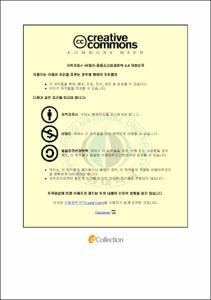지속가능경영이 기업가치에 미치는 영향
- Abstract
- Abstract
There is a growing concern for sustainable management in the world along with the emergence of a new paradigm that requires the integration of financial business elements, which are sales and profit, with nonfinancial factors, which are economy, environments and society. Since the concept of sustainable development was mentioned for the first time in the United Nations Conference on the Human Environment in 1972, a wide variety of attempts have constantly been made to apply it to business administration, and the concept of sustainable management has been introduced in 2000 when the World Summit on Sustainable Development initiated the formal application of it to business administration. Sustainable management that is evaluated in terms of economy, society and environment is one of the standards to determine business performance or competitiveness.
The purpose of this study was to examine the impact of corporate sustainable management on firm value by selecting the ESG rating developed by the Corporate Governance Service as a variable for corporate sustainable management in an effort to determine the relationship between sustainable competitiveness and firm value.
After the companies that were listed between 2011 and 2014 were selected, an empirical analysis was made by using Ohlson(1995)'s valuation model to find out the influence of their ESG rating on firm value. As a result, it's found that their ESG rating exerted a significant positive influence on firm value. It implied that sustainable business competitiveness was linked to firm value.
The findings of the study had crucial implications: First, the companies whose ESG rating was higher rated higher in firm value as well. Second, the findings lend credibility to the argument that nonfinancial information should be made public to information users as a way to supplement financial statements. Third, it's advisable for corporations to view expenditure for corporate sustainable management as an asset for profit generation, not as spending.
- Issued Date
- 2015
- Awarded Date
- 2015. 2
- Type
- Dissertation
- Publisher
- 부경대학교 대학원
- Affiliation
- 부경대학교 대학원
- Department
- 대학원 경영학과
- Advisor
- 김확열
- Table Of Contents
- 목 차
Abstract ⅳ
제 1 장 서론 1
제 1 절 연구의 배경 및 목적 1
제 2 절 연구의 방법 및 구성 2
제 2 장 이론적 배경 및 선행연구 4
제 1 절 지속가능경영 4
제 2 절 기업가치 11
제 3 절 지속가능경영과 기업가치와의 관계 14
제 3 장 연구설계 21
제 1 절 연구가설 21
제 2 절 연구모형 23
제 3 절 변수의 정의 및 측정 26
제 4 절 표본선정 31
제 4 장 실증분석 32
제 1 절 기술통계량 32
제 2 절 상관관계 분석 33
제 3 절 회귀분석 37
제 4 절 분석결과 및 해석 42
제 5 장 결론 45
참고문헌 48
- Degree
- Master
- Files in This Item:
-
-
Download
 지속가능경영이 기업가치에 미치는 영향.pdf
기타 데이터 / 826.87 kB / Adobe PDF
지속가능경영이 기업가치에 미치는 영향.pdf
기타 데이터 / 826.87 kB / Adobe PDF
-
Items in Repository are protected by copyright, with all rights reserved, unless otherwise indicated.